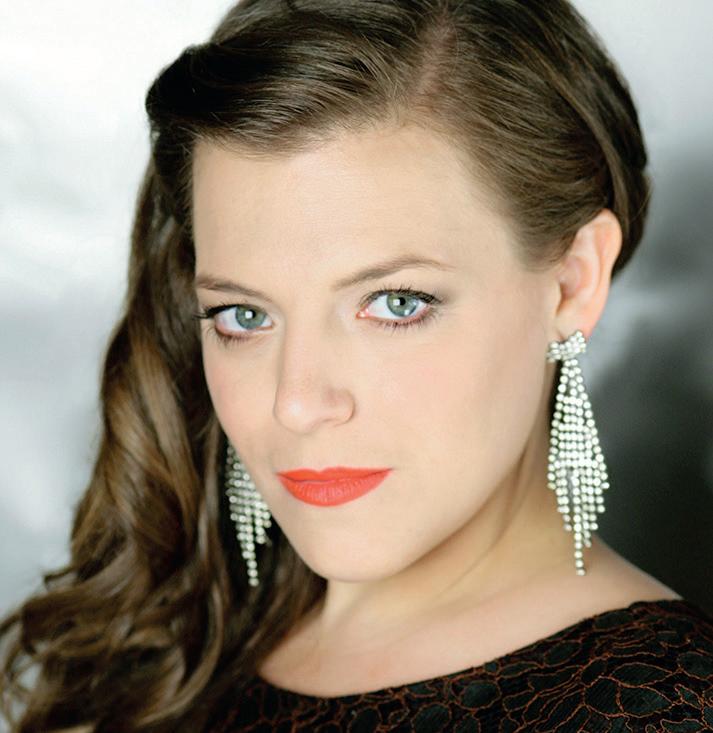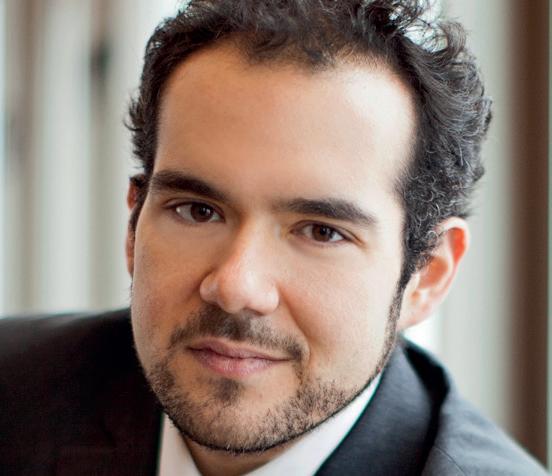
5 minute read
EnchantinG V ERDI
Giuseppe Verdi, (1813-1901)
Born in Busseto, by the age of 10, Verdi was the assistant organist at his local church; at the age of 13, Verdi was already an assistant conductor of the Busseto Orchestra. As a young man, he moved to Milan but was not accepted in the conservatory that today bears his name, because he exceeded the age limit and his skills as a pianist were deemed to be provincial. Instead, he took private lessons from Vincenzo Lavigna, the harpsichordist at the Scala Theater. In 1837, he composed his first opera, Oberto, which enjoyed moderate success. It was with Nabucco (1842), however, that Verdi became a legend. Between 1850 and 1853, Giuseppe Verdi would compose his three most famous and beloved operas — Rigoletto, Il Trovatore, and La traviata. Of his twenty-seven operas, these three form the core of his middle period of composition, and fully express his musical and dramatic power. Only a few weeks separate the premieres of Il Trovatore in Rome and La traviata in Venice. Indeed, sections of La traviata were written on the train between Rome, Venice, and Verdi’s villa at Sant’Agata.
La traviata is based on the play La Dame aux camelias by Alexandre Dumas, the son of the famous author of The Three Musketeers. Best known to Classic Movie buffs as Camille, the play was first performed in Paris in 1852 and Verdi saw a performance. The basis of La Dame aux camelias lies in fact–a true liaison between the author Dumas and the beautiful Parisian courtesan Marie Duplessis, who he lived with during the summer of 1845. None of Verdi’s operas before La traviata dealt with a contemporary setting–from Nabucco to Il Trovatore, the settings were historic or mythical, the characters representations of human emotions, but never actual living people. La traviata is set in what would have been contemporary times, i.e., Paris in the 1850’s, and its subject, which deals with an illicit love affair by a young man from the provinces with a provocative kept woman, includes scenes showing the rich and powerful being involved with the demi-monde, the world of courtesans, gambling, and extravagance of Paris at that time–taboo subjects that were scandalous.
On opening night, the Venetian public saw characters dressed as they would have dressed, in circumstances dealing with women of loose virtue, familial conflict and the most dreaded of contemporary illnesses, tuberculosis. Add to this the fact that soprano Fanny Salvini-Donatelli, the first Violetta, was a stout woman portraying a beautiful, frail and vulnerable courtesan, and you have the makings of a disaster–and a disaster it was. The day after the March 6 premiere, Verdi wrote to his assistant, “Emanuele: Traviata last night–a fiasco. Was it my fault or the singers? Time will tell.” Time has indeed judged that La traviata is one of Verdi’s greatest works, the third of this famous triumverate of operas from this extraordinarily creative period in his long and productive life.
By the age of 49, Verdi had been elected deputy to the first Italian parliament and, at Cavour’s request, composed a national hymn to promote feelings of solidarity within the new nation. With the death of Rossini in 1868, Verdi composed his magnificent Requiem Mass. Ever wavering between retirement and the seduction of a new project, Verdi composed Aida in 1871, intended to be Egypt’s national opera.With its premiere in Cairo, the opera became an immediate success and has remained one of Verdi’s greatest artistic achievements. His final works, Otello and Falstaff, are the crowning achievements of the illustrious career of one of music’s greatest composers.
Inside Opera
MELINDA WHITTINGTON, Violetta Valéry
The Salt Lake Tribune praises Melinda Whittington for her “performances of emotional resonance along with their powerhouse vocals.” Melinda returns to her home company, Opera Carolina, for her role debut as Violetta in La traviata. Last season with the company, she sang Donna Anna in Don Giovanni and the Coming Home Soldier in Redler and Dye’s The Falling and the Rising. She also returned to the Metropolitan Opera for its production of Akhnaten and sang further performances of Donna Anna in Don Giovanni with Opera Grand Rapids. Next season she looks forward to making her role debut as Mimi in La boheme with Minnesota Opera. Among the soprano’s other recent performances are debuts with Arizona Opera as Donna Anna in Don Giovanni and a return for the title role of Rusalka, Utah Opera for Donna Anna in Don Giovanni, Ash Lawn Opera as Fiordiligi in Così fan tutte, and North Carolina Opera as Ada in Higdon’s Cold Mountain and Nedda in Pagliacci. She has sung the title role of Arabella with Pittsburgh Festival Opera; Juliette in Roméo et Juliette with Opera Birmingham and Pensacola Opera; Micaëla in Carmen with Greensboro Opera; Donna Elvira in Don Giovanni with Green Mountain Opera. The soprano joined the artist roster of the Lyric Opera of Chicago for its recent production of Eugene Onegin and the Metropolitan Opera for Akhnaten and Macbeth. She sang Micaëla in Carmen and Marie Antoinette in Corigliano’s The Ghosts of Versailles as a Filene Young Artist at Wolf Trap Opera and subsequently returned to the company for a birthday concert celebration honoring the composer. She was the 2015 first place winner of the Opera Birmingham competition, 2016 third place winner in Fort Worth Opera’s McCammon Voice Competition, a 2013 semi-finalist of the Metropolitan Opera National Council Auditions, winner of the Charlotte Opera Guild Competition, and an encouragement award winner in the Gerda Lissner International Vocal Competition. She is a former participant in the prestigious Merola Opera Program in association with San Francisco Opera at which she performed scenes as the title role in Donizetti’s Anna Bolena, Barber’s Vanessa, and Bizet’s Le jolie fille de Perth. She holds a Master of Music degree from the University of North Carolina Greensboro and a Bachelor of Music from the University of North Carolina at Chapel Hill. Melinda just released a self-produced album of art song entitled Night and Day, which is available in the lobby.

DOMINIC ARMSTRONG, Alfredo Germont
Dominic Armstrong, a Metropolitan Opera National Council finalist and winner of the George London Competition has performed in recitals at The University of Missouri and his alma mater Truman State University, Brooklyn Art Song Society; symphonic concerts with the University of Missouri (Verdi’s Requiem), Salisbury Symphony, and the Bangor Symphony (Beethoven’s Symphony No. 9), and returns to Opera Carolina following his powerful performance in The Falling and the Rising with his home company. Dominic debuted with Utah Opera, portraying Der Steuermann in Der Fliegender Holländer and returned to a more active performance schedule, including recitals and operas with Dayton Opera. He made his UK debut premiering Will Todd’s Requiem Gravare, and curated a program of Czech art songs as well as performiomng a semi-staged production of Janacek’s The Diary of One Who Disappeared with The Castleton Festival. In 2019/20, he debuted with Kentucky Opera as Don José in Carmen, On Site Opera as Peter Quint in Turn of the Screw, Ricky Ian Gordon’s new work Intimate Apparel with Lincoln Center Theatre. Along with the National Council and George London awards, Dominic has received prizes, grants, and awards from The Sullivan Foundation, The Opera Foundation, Opera Index, Gerda Lissner Foundation, SAI Vocal Competition, The Annapolis Opera, Gold Medal Competition (Truman State University), NATS State and Regional awards, and was the winner of the 2009 Liederkranz Art Song Competition. He holds degrees from Truman State University, The Juilliard School, and The Curtis Institute of Music. In Fall of 2020, Armstrong joined the University of South Carolina faculty as an Assistant Professor of Voice. He joined the faculty of the Opera Conservatory of The Chautauqua Opera in the summer of 2022. Read his full bio at operacarolina.org.










